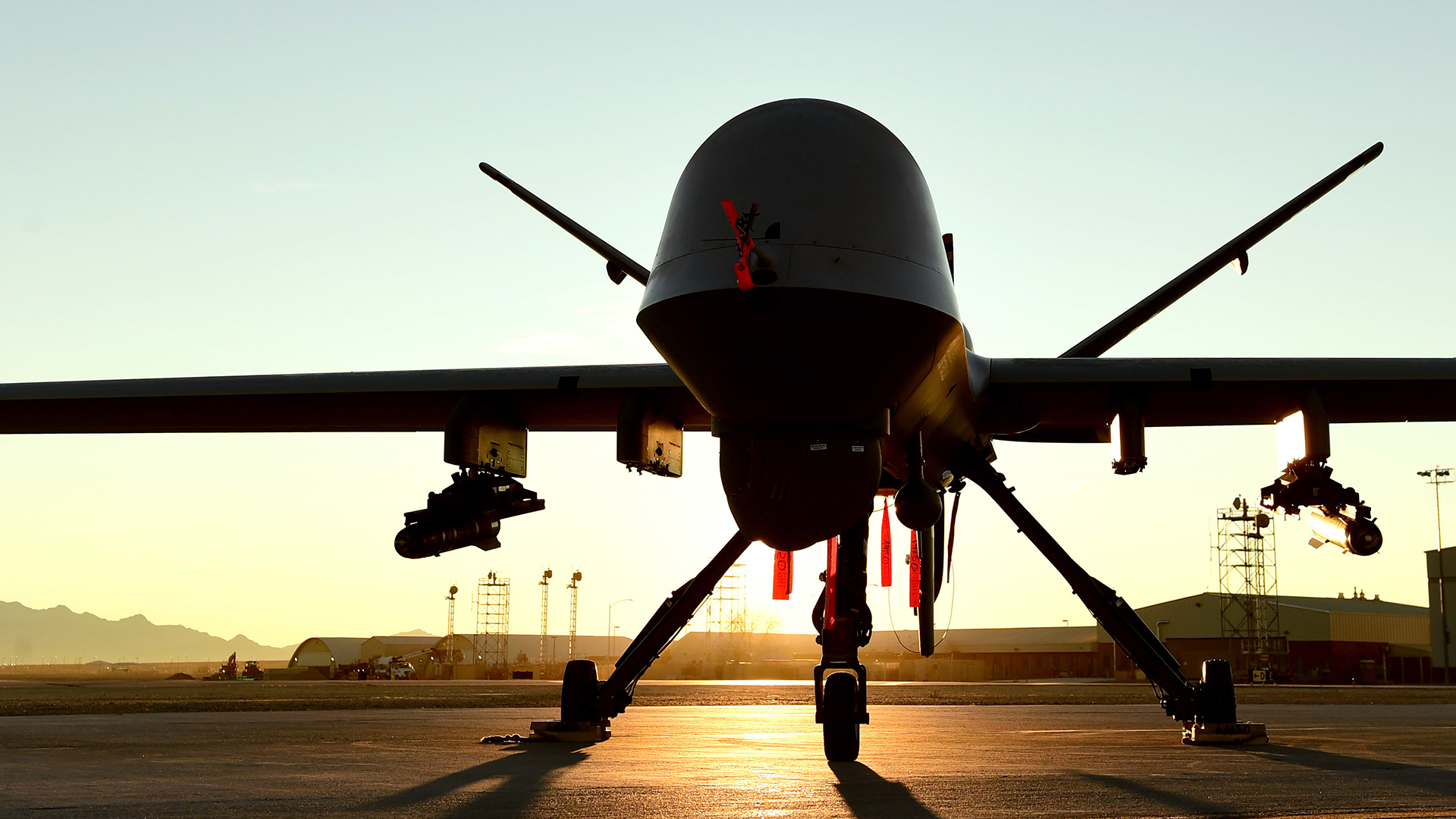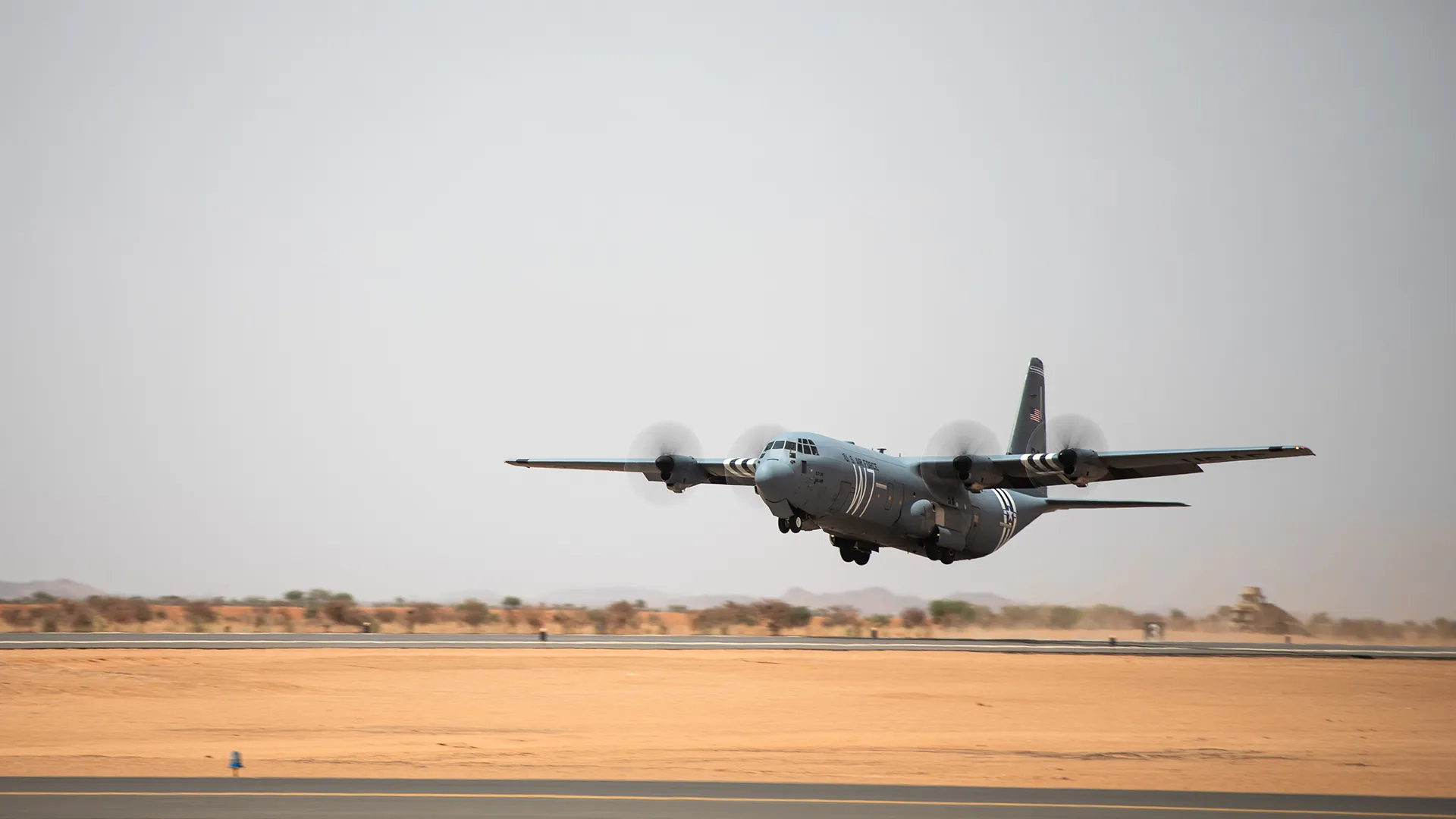

The U.S. military is unable to fly drones from a base in Niger because the country’s airspace has been closed after a coup overthrew the government in late July, a U.S. official said.
Known as “Nigerien Air Base 201,” the installation cost $110 million to build and it features a 6,200-foot runway for MQ-9 Reapers as well as manned aircraft. The U.S. military began conducting drone flights from the base in November 2019.
About 1,100 U.S. troops are currently deployed to Niger, according to the Defense Department. The country is an important partner in the U.S. military’s efforts to counter the Islamic State group and other terrorist organizations in Africa. In October 2017, four U.S. soldiers were killed near the Nigerien village of Tongo Tongo after being attacked by more than 100 ISIS fighters.
Politico first reported that U.S. military drones were unable to fly from a base near Agadez, Niger, after the country’s armed forces ousted Niger’s president in a July 26 coup.
Subscribe to Task & Purpose Today. Get the latest military news and culture in your inbox daily.
The base serves as a critical intelligence and surveillance hub for the U.S. military’s efforts to combat violent extremism in North and West Africa, said Jocelyn Trainer, an expert on sub-Saharan Africa with the Center for a New American Security think tank in Washington, D.C.

“With a limited U.S. base presence in Africa – restricted to Djibouti and Niger – losing access to Base Aerienne 201[Niger Air Base 201] would be a detrimental blow to U.S. and African joint efforts to counter violent extremist groups connected to the Islamic State and Al-Qaeda operating in the area,” Trainer told Task & Purpose. “This setback coincides with France diminishing its presence in the region. A reduced U.S. and French presence could create space for Wagner, or other actors, to fill a security vacuum.”
It is too early to determine how the closure of Niger’s airspace will affect U.S. military operations in Africa, a second U.S. official told Task & Purpose.
In the short term, not being able to use of Nigerien Air Base 201 will limit the U.S. military’s visibility over the Sahel region of Africa where ISIS and al-Qaida’s branch in West Africa known as Jama’at Nusrat al-Islam wal-Muslimin, or JNIM, both have a strong presence, said Caleb Weiss, an expert on jihadism in Africa and the Middle East.
“It definitely affects their ability to support troops on the ground, whether that be Special Forces ODAs [Operational Detachment Alphas], or the French in Niger and certainly keeping tabs on JNIM and ISGS [the Islamic State in the Greater Sahara] throughout the entire Sahel,” said Weiss, a senior analyst with the Bridgeway Foundation, a nonprofit organization that seeks to end genocide.
Al-Qaeda and ISIS are “incredibly strong and growing stronger” in the Sahel, and both groups will be the main benefactors of the coup in Niger, Weiss told Task & Purpose.

The future of the U.S. military’s presence in Niger is also uncertain in the wake of the country’s recent political instability. So far, President Joe Biden’s administration has not described the Nigerien military’s actions as a “coup,” a legal definition that would trigger an end to U.S. aid to the country.
“Our economic and security partnership with Niger – which is significant, hundreds of millions of dollars – depends on the continuation of the democratic governance and constitutional order that has been disrupted by the actions in the last – in the last few days,” Secretary of State Antony Blinken told reporters on July 29. “So that assistance, that support, is in clear jeopardy as a result of these actions, which is another reason why they need to be immediately reversed.”
However, the security situation in Niger is at risk of deteriorating further. On July 30, several West African countries threatened to invade Niger unless its president was returned to power. In response, the military juntas running Burkina Faso and Mali have warned that they will treat any outside military intervention in Niger as a “declaration of war” against them.
Until the recent coup, Niger had been one of the U.S. military’s most important partners in Africa for counterterrorism operations, said Bill Roggio, a senior fellow with the Foundation for Defense of Democracies think tank in Washington, D.C.
Now Niger’s ruling military junta appears to be hostile toward the United States and more concerned with consolidating its power than extending the government’s authority into areas where terrorist groups operate, Roggio told Task & Purpose.
Roggio noted that French troops left Mali following that country’s 2021 coup, so the political turmoil in Niger only adds to the region’s instability.
“This is a region that’s already on the downslide,” Roggio said. “The jihadist threat has metastasized in the region from both al-Qaida and the Islamic State. The ability to observe and react to these groups has decreased significantly with the loss of Mali, and this is yet another blow. If the airspace remains closed, the impact of this incalculable – bit it certainly isn’t positive.”
The latest on Task & Purpose
- Air Force shows off its Rapid Dragon cruise missile system on China’s doorstep
- The Pentagon didn’t refuse to pay $60,000 to fly fallen Marine Nicole Gee to Arlington [Updated]
- Bowe Bergdahl’s court-martial is overturned
- Everything we know about the U.S. Army soldier in North Korea
- Parris Island drill instructor found not guilty of Marine’s death during Crucible
